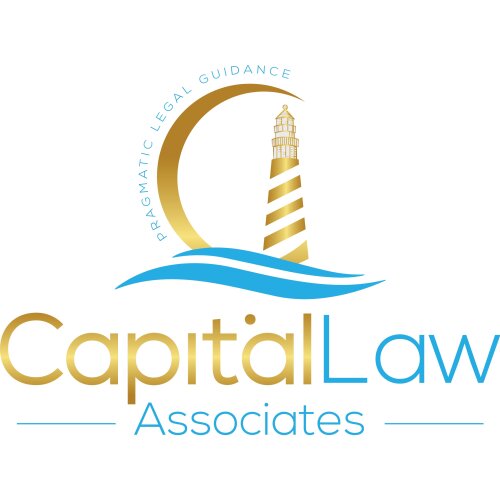Best Tax Increment Financing Lawyers in Nassau
Share your needs with us, get contacted by law firms.
Free. Takes 2 min.
List of the best lawyers in Nassau, Bahamas
About Tax Increment Financing Law in Nassau, Bahamas
Tax Increment Financing (TIF) is a public financing method that is used for subsidizing redevelopment, infrastructure, and other community-improvement projects. In Nassau, Bahamas, TIF is designed to encourage economic development and revitalization by diverting future property tax revenue increases from a defined district toward an investment within that district. TIF plays a critical role in promoting growth and regeneration in underdeveloped or distressed areas without imposing additional tax liabilities on the local community.
Why You May Need a Lawyer
Understanding Tax Increment Financing can be complex, and there are several situations where legal assistance may be necessary:
- Project Development: If you are a developer looking to finance a project using TIF, a lawyer can help you navigate the legal requirements and procedures.
- Compliance: Ensuring compliance with local regulations and laws is crucial. Legal guidance can help prevent potential legal issues down the road.
- Contract Negotiation: A lawyer can provide valuable support in negotiating contracts related to TIF agreements with governmental bodies.
- Dispute Resolution: In case of disputes with stakeholders or government entities, legal representation can be crucial in achieving a favorable outcome.
- Regulatory Changes: Keeping abreast of any changes in legislation or policy related to TIF is critical, and a lawyer can help ensure that your projects remain in compliance.
Local Laws Overview
In Nassau, Bahamas, TIF laws are primarily focused on fostering economic development within designated areas. Key aspects of local laws include:
- Eligible Areas: TIF is typically applied in designated areas that are underdeveloped or blighted.
- Financing Mechanisms: The law outlines how the increase in property taxes from the uplift in development value is used to finance public improvements.
- Approval Processes: Projects using TIF require approval from local government agencies, which may include a feasibility study and impact assessment.
- Reporting and Accountability: Regular reporting on the progress and financial aspects of TIF projects is required to ensure accountability and transparency.
Frequently Asked Questions
What is Tax Increment Financing?
Tax Increment Financing is a method that uses future gains in taxes to finance current improvements. These improvements are expected to bring development, which in turn increases the value of properties and tax revenues.
How does TIF benefit the community?
TIF can stimulate economic development, create jobs, and improve infrastructure without increasing current tax burdens on residents.
Who is eligible to apply for TIF?
TIF applications are usually open to developers looking to invest in designated redevelopment areas, subject to meeting local government requirements.
Are there any risks associated with TIF?
Risks include project delays, increased project costs, and the potential underperformance of anticipated tax revenue increases.
Can TIF be used for residential projects?
Yes, TIF can be used for residential projects as long as they meet the criteria set forth by the local government and are within designated areas.
How is the baseline tax revenue determined?
The baseline tax revenue is typically calculated based on the current property taxes at the time the TIF district is established.
Is public approval required for TIF projects?
Public meetings may be held to discuss TIF projects, and in some instances, broad public approval measures are required.
How long does a TIF district last?
The lifespan of a TIF district can vary, but it is usually set for a significant period such as 20-25 years to allow sufficient revenues for improvement projects.
Can a TIF district be extended?
Extensions may be possible under certain conditions, but often require additional governmental approval and justification.
What happens if a TIF project fails?
If a TIF project fails, it can lead to financial deficits, which may affect future public funding and requires strategic adjustments by the local government.
Additional Resources
For more information and assistance with TIF in Nassau, Bahamas, consider reaching out to the following resources:
- Bahamas Investment Authority: For guidance on investment opportunities and procedures.
- Office of the Prime Minister: For policy direction and government initiatives related to economic development.
- Local City Councils: For specific information on designated TIF districts and project approvals.
- Bahamian Bar Association: To find qualified attorneys specializing in TIF and other similar areas.
Next Steps
If you are seeking legal assistance for TIF-related matters, consider the following steps:
- Consultation: Schedule a consultation with a lawyer who specializes in TIF law to discuss your specific needs and circumstances.
- Gather Information: Collect all necessary documents and information related to your TIF project or area of interest.
- Legal Representation: Ensure you have professional legal representation to guide you through the process and represent your interests effectively.
- Stay Informed: Keep abreast of any legislative or policy changes that may impact TIF projects or opportunities in Nassau, Bahamas.
Lawzana helps you find the best lawyers and law firms in Nassau through a curated and pre-screened list of qualified legal professionals. Our platform offers rankings and detailed profiles of attorneys and law firms, allowing you to compare based on practice areas, including Tax Increment Financing, experience, and client feedback.
Each profile includes a description of the firm's areas of practice, client reviews, team members and partners, year of establishment, spoken languages, office locations, contact information, social media presence, and any published articles or resources. Most firms on our platform speak English and are experienced in both local and international legal matters.
Get a quote from top-rated law firms in Nassau, Bahamas — quickly, securely, and without unnecessary hassle.
Disclaimer:
The information provided on this page is for general informational purposes only and does not constitute legal advice. While we strive to ensure the accuracy and relevance of the content, legal information may change over time, and interpretations of the law can vary. You should always consult with a qualified legal professional for advice specific to your situation.
We disclaim all liability for actions taken or not taken based on the content of this page. If you believe any information is incorrect or outdated, please contact us, and we will review and update it where appropriate.

















